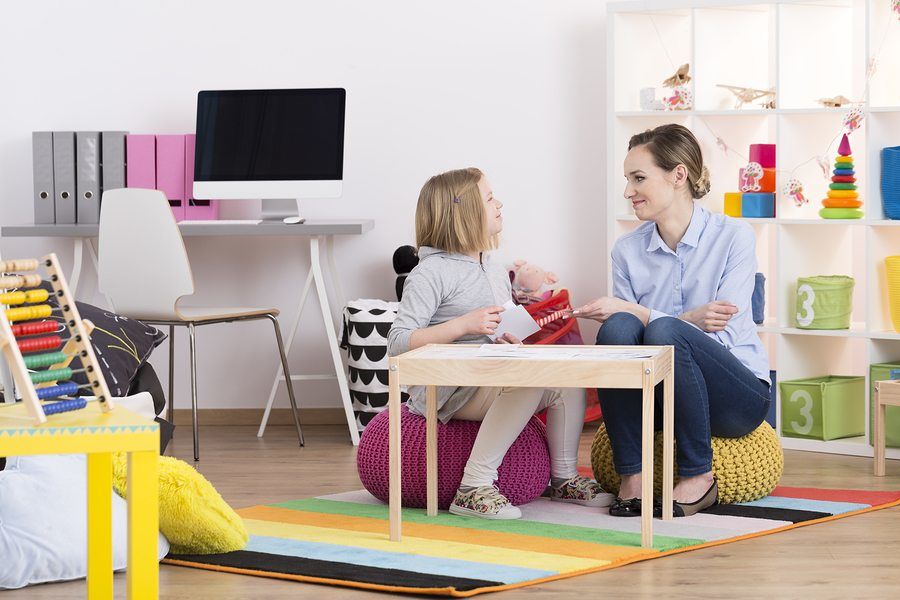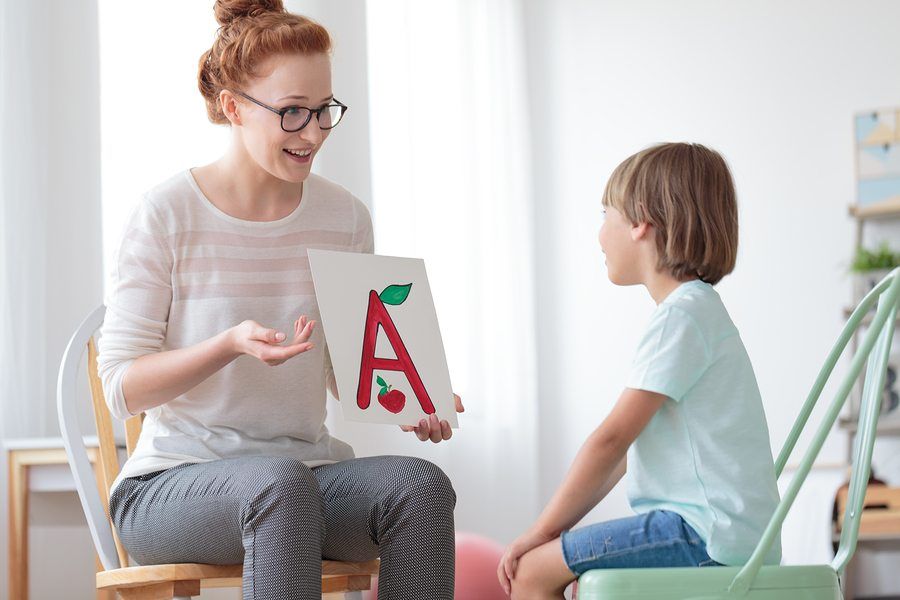It is crucial for a child with a lack of verbal communication to be provided with ongoing language support and therapy so they can communicate their basic needs and wants to others.
A child who is limited without a voice is very restricted in the ability to make choices, socially interact amongst peers and can in severe cases be closed off to the world completely.
There are many forms of speech issues such as stuttering, listening skills and language skills. The main goal of speech therapy for children is to improve overall communication. Let’s take a look at some of the ways it can benefit your child.
Improved Communication Skills
Being able to communicate with your child is extremely important. It is here where they learn the important skills like social interaction and the ability to make choices. Speech pathologists have come a long way in terms of developing successful tools and strategies.
An example is using language to express more complex ideas, encouraging kids to use words like “and” to lengthen the sentence and build confidence.
Building vocabulary gives the child more words and phrases to use, vocab games is a tool used by pathologists to make them feel more comfortable and confident with the end goal of giving them more tools for communication.
Helps with Social Skills
Developing social skills is very important terms of interacting with others in the community and throughout life. When someone has very limited functional speech skills, often the process of developing these skills are significantly delayed. Social skills can be taught at fundamental levels through apps, social stories and many more techniques and strategies.
Displaying good manners and being considerate of the feelings of others are important components of good social skills. Like any skill, social skills can be learnt through ongoing support from professionals and situations that require verbal communication such as in the classroom.

Professionals can’t stress the importance of playing with peers. It is said that most of the social skills learnt from children are through playing, whether it’s your house or your child’s friend’s house or even the school playground, this is where they will gain most of their social skills.
Can Help with Stuttering
Stuttering is a fairly common communication disorder among children affecting the speech fluency. It typically begins in early childhood and is diagnosed by breaks in speech with can significantly affect their communication. There may also be secondary behaviours such as jerking movements in the arms and legs and tensions in the jaw and face muscles.
Speech therapy for children can reduce effects on children through strategies and tools such as trying to make the child feel as happy as possible with fun and exciting games that encourage speaking. Promoting smiling and laughing increases the fluency in speech and subconsciously teaches the child that speaking is a fun and enjoyable way to communicate.
Receptive Language
It is one thing to talk and to express language, but it’s another to receive it. Children’s ability to interpret and understand language is very important in the development process. Understanding how to communicate when receiving cues will encourage better social skills, and the ability to read situations becomes increasingly easier.
Professionals in the field can help teach your child new vocabulary on how to use the knowledge and follow directions, answer questions and participating in conversations with peers.
It is important to recognise that after the sessions with the certified speech professionals, applying the things learnt in the session such as the games and tools at home is extremely imperative. The child must further develop the strategies outside therapy as it shows it is working effectively.
Cognitive Communication Skills

Cognitive impairment issues such as attention span, memory and awareness can be developmental in nature, or can be acquired by degenerative diseases or head injuries. The ability to communicate effectively is significantly affected by cognitive affects and requires extensive support and ongoing sessions.
Speech pathologists can help build the necessary skills and teach your child compensatory methods to assist them. Some of the things in the session might include encouraging games and playing with peers, as well as using speech apps for a more theoretical approach.
Speech therapy for children aims to teach them how to coordinate their mouth and mind to accurately produce sound speech. The speech pathologists individualise each child in terms of developing unique strategies to help them experience success.
It is very important for children to receive assistance if there are problems with their speech. Things like social interactions become difficult as they don’t know how to socialise properly due to constraints such as stutters and receptive language problems.

